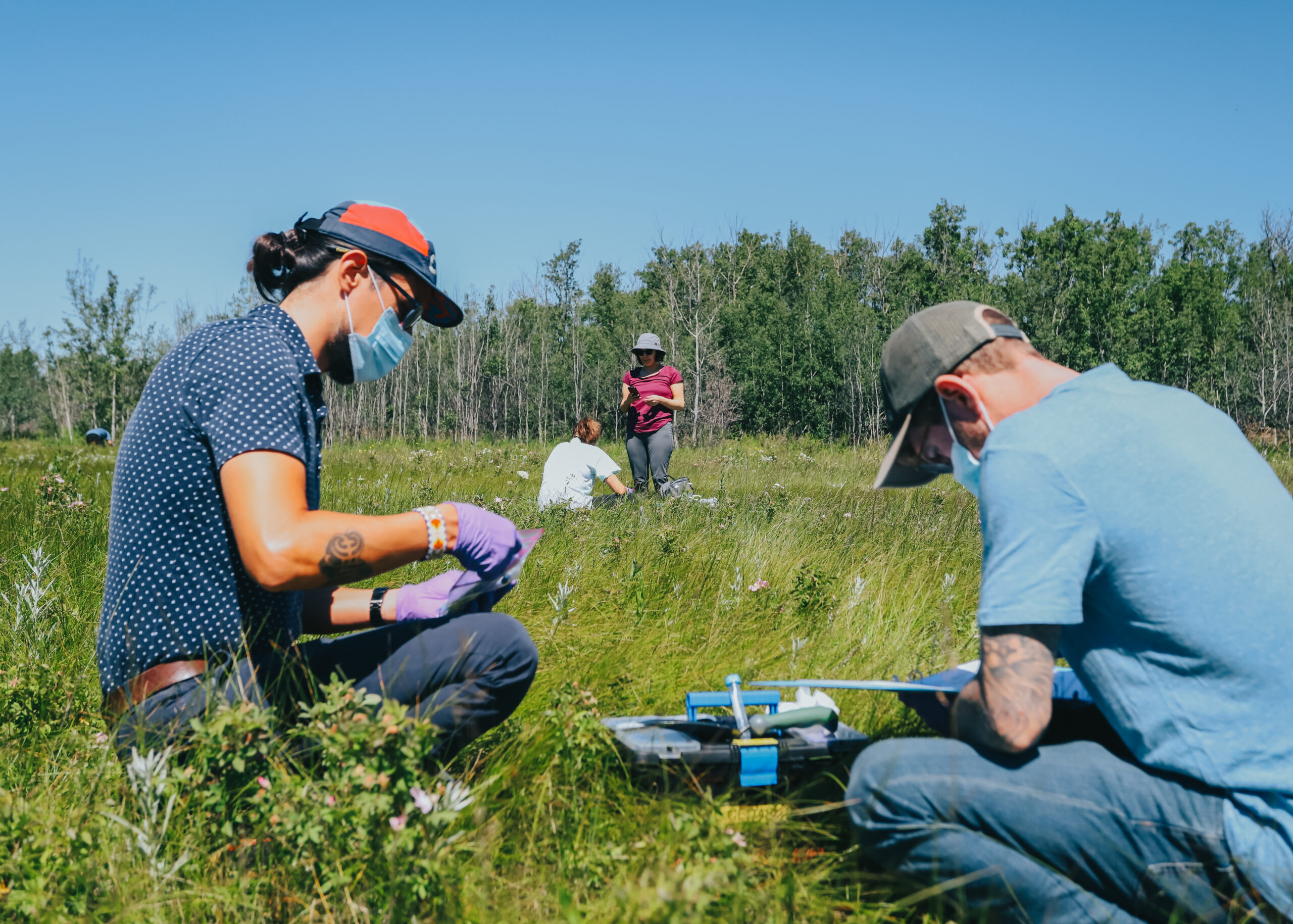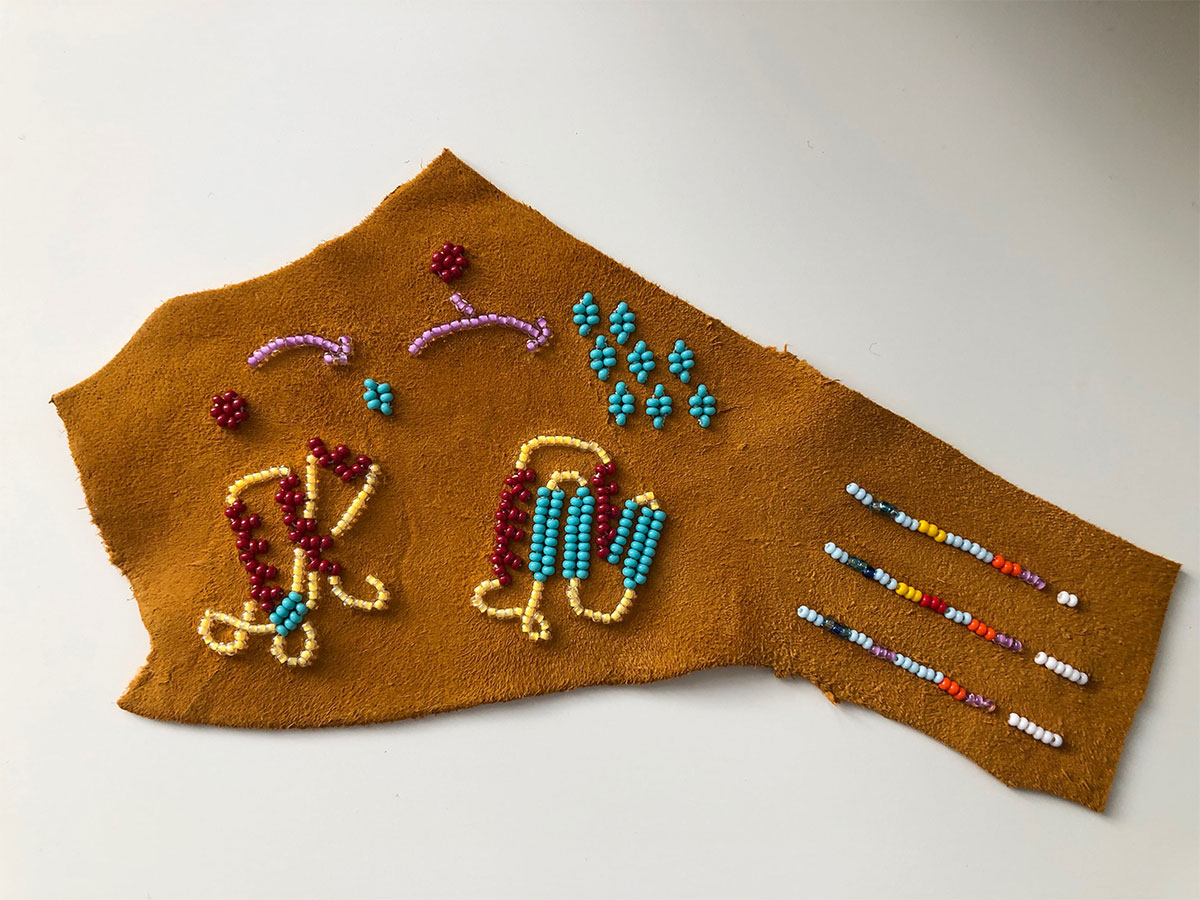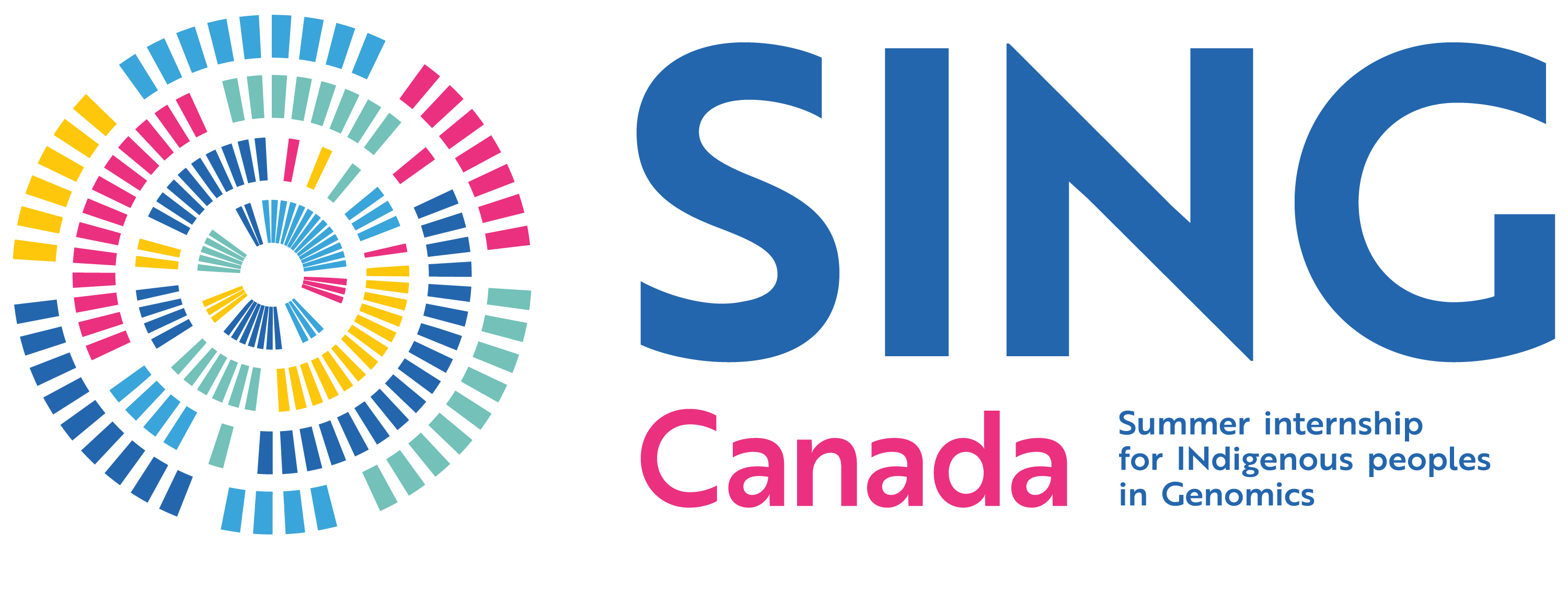Resources
As the SING Canada program continues to build, so does our list of media, press and published resources. Not only is news about our program spreading, but we also have more stories to tell ourselves. It is the new goal of each summer workshop to produce knowledge mobilization products including peer-reviewed publications (of which our participants will be co-authors), research-creation pieces and other relevant knowledge resources. If you can’t find the information about our program here, please let us know what you are looking for and we’d be happy to help.
News and Media
Reading List
The following readings have been selected to supplement lectures and discussions and to enhance the learning of our workshop participants. The reading list is a compilation of articles meant to introduce some of the main concepts, methods, and approaches explored during our workshops but it is a helpful tool for anyone interested in learning more about Indigenous genomics. Do not be discouraged if you are unfamiliar with the material or have difficulty fully understanding it. The goal of reading is to begin familiarizing yourself with the material.
Gaudry, A., & Lorenz, D. (2018). Indigenization as inclusion, reconciliation, and decolonization: navigating the different visions for indigenizing the Canadian Academy. AlterNative: An International Journal of Indigenous Peoples, 14(3), 218–227. DOI: 10.1177/1177180118785382
Gouldhawk, M. (Sept 10, 2020). Land as a social relationship. Briarpatch.
Hugenholtz, P., Tyson, G. (2008). Metagenomics. Nature 455, 481–483. DOI: 10.1038/455481a
Kolopenuk, J. (2020). Miskâsowin: Indigenous Science, Technology, and Society. Genealogy, 4(1), 21. DOI: 10.3390/genealogy4010021
Kolopenuk, J. (2020). Provoking Bad Biocitizenship. For “All of Us”? On the Weight of Genomic Knowledge, ed. J. M. Reynolds and E. Parens, special report, Hastings Center Report 50, no. 3: S23-S29. DOI: 10.1002/hast.1152
Laudadio, I., Fulci, v., Stronati, L., and Carissimi, C. (2019). Next-Generation Metagenomics: Methodological Challenges and Opportunities. OMICS: A Journal of Integrative Biology. 327-333.DOI: 10.1089/omi.2019.0073
Lorde, A. (1984). The Uses of the Erotic.
Mangola, S.M., Lund, J.R., Schnorr, S.L. et al. (2022). Ethical microbiome research with Indigenous communities. Nat Microbiol 7, 749–756 . DOI: 10.1038/s41564-022-01116-w
Miranda, D.A. (2002). Dildos, Hummingbirds, and Driving Her Crazy: Searching for American Indian Women’s Love Poetry and Erotics. Frontiers: A Journal of Women Studies 23(2), 135-149. DOI:10.1353/fro.2002.0036
Reardon, J., & TallBear, K. (2012). “Your DNA Is Our History”: Genomics, Anthropology, and the Construction of Whiteness as Property. Current Anthropology, 53(S5), S233–S245. DOI: 10.1086/662629
Scheibinger, 2005. Forum Introduction: The European Colonial Science Complex. Isis, 96:52–55.
Shamarina et al.(2017). Communicating the promise, risks, and ethics of large-scale, open space microbiome and metagenome research. Microbiome. 5:132. DOI: 10.1186/s40168-017-0349-4
Smith, R., Springs, L., Reynolds, A., and Bolnick, D. (2021) Making Kin in a Postgenomic World: Indigenous Belonging after the Genome.
TallBear, K. (2015) Who Owns The Ancient One? Buzzfeed News.
Tsosie, K.S., Yracheta, J.M., Kolopenuk, J. and Smith, R.W.A. (2021), Indigenous data sovereignties and data sharing in biological anthropology. Am J Phys Anthropol, 174: 183-186. DOI: 10.1002/ajpa.24184















